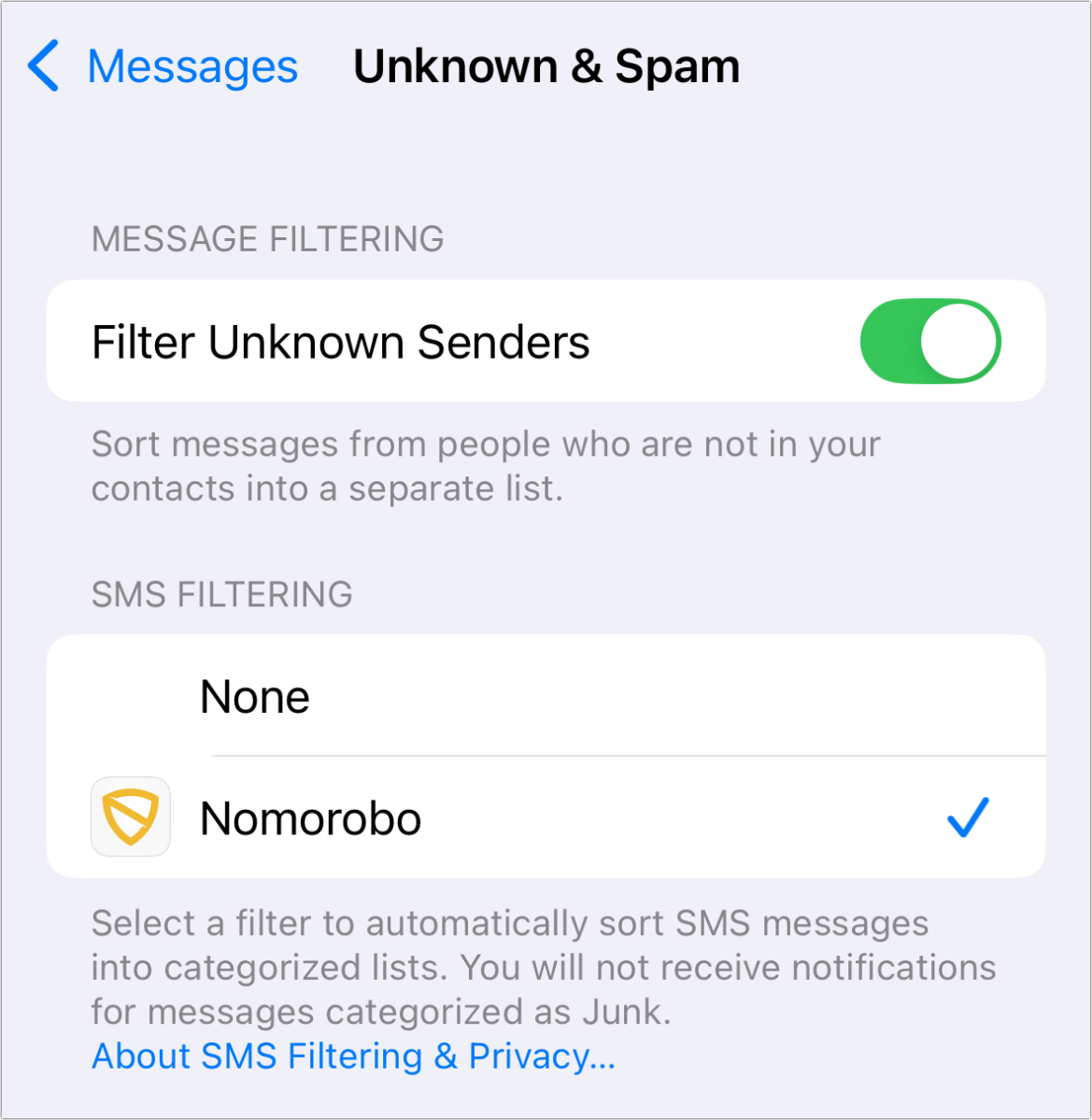How to block annoying texts with a few taps on your iPhone
Description
<body>
Apple hasn’t yet provided a consistent way to mark unwanted incoming text messages and block and delete them. Nor do they identify texts for patterns–as the Mail app and iCloud.com does to mark commercial and fraudulent emails–to see if they look like something that should go right into the bit bucket. Here are a few things you can do to block annoying texts on your iPhone.
Delete and Report
In some cases, iOS may display an option that says Report Junk or Delete and Report Junk for SMS messages from unknown senders. This depends on whether your wireless carrier supports the option and other configurations choices you’ve made for the Phone app and texting. If it’s available, you can swipe left in the conversation list on an unwanted message, tap the Trash icon, and tap Delete and Report Junk. In a conversation, a Report Junk option appears below the most recent text: tap it and then tap Delete and Report Junk.
Use SMS filters
You can install third-party SMS filters, an option Apple allowed starting in 2017. These filters do see the contents of your SMS messages, which is a privacy risk, but one that the companies involved have detailed policy statements about and bear the liability for if your messages were to be breached. I wrote about how to use these filters in 2017, and the process remains identical today (though in iOS 18, the configuration is handled at Settings > Apps > Messages > Unknown & Spam).
To find apps that offer SMS filtering, go to the iOS App Store and search on “SMS filter.” The App Store doesn’t have a category specifically for this task.
 <button class="lightbox-trigger" type="button" aria-haspopup="dialog" aria-label="Enlarge image: iOS filter unknown senders" data-wp-init="callbacks.initTriggerButton" data-wp-on-async--click="actions.showLightbox" data-wp-style--right="context.imageButtonRight" data-wp-style--top="context.imageButtonTop">
<button class="lightbox-trigger" type="button" aria-haspopup="dialog" aria-label="Enlarge image: iOS filter unknown senders" data-wp-init="callbacks.initTriggerButton" data-wp-on-async--click="actions.showLightbox" data-wp-style--right="context.imageButtonRight" data-wp-style--top="context.imageButtonTop"><svg xmlns="http://www.w3.org/2000/svg" width="12" height="12" fill="none" viewbox="0 0 12 12">
<path fill="#fff" d="M2 0a2 2 0 0 0-2 2v2h1.5V2a.5.5 0 0 1 .5-.5h2V0H2Zm2 10.5H2a.5.5 0 0 1-.5-.5V8H0v2a2 2 0 0 0 2 2h2v-1.5ZM8 12v-1.5h2a.5.5 0 0 0 .5-.5V8H12v2a2 2 0 0 1-2 2H8Zm2-12a2 2 0 0 1 2 2v2h-1.5V2a.5.5 0 0 0-.5-.5H8V0h2Z"></path>
</svg>
</button><figcaption class="wp-element-caption">
Apple lets you work with third-party apps that can examine your SMS messages for junk. Tagged messages are sorted into a filtered category.
</figcaption></figure>Foundry
Due to the end-to-end encryption and privacy intent by Apple for iMessage, Apple doesn’t offer third-party filtering for that category of message. However, because all iMessage posts require validated Apple ID accounts, you can reliably block the source of an iMessage—they can’t just generate endless iMessage accounts, unlike the potential of creating false originating phone numbers for text messages.
Develop a manual reflex
I’ve developed a quick set of actions for blocking unwanted texts that I wish I could make into a Shortcut in iOS, but which appears to require too many elements that aren’t available in Shortcuts.
When I receive an illegitimate text, or one from a real source that I didn’t give permission to text me, here’s what I do:
- Tap the conversation to view the message.
- Tap the profile link at the top.
- Tap the Info button.
- Tap Block Caller.
- Tap the back button in the upper-left corner (<).
- Tap Hide Alerts.
- Tap the back button again to get to the top level of Messages.
- Swipe left on the conversation and tap the Delete Conversation trash can icon.
What this does is:
- Blocks further calls or texts, which has become more reliable since the FCC tightened rules about validating phone numbers in Caller ID a couple of years.
- Prevents notifications if that block is somehow eluded.
- Deletes the conversation from your field of view, reducing clutter in Messages.
Ask Mac 911
We’ve compiled a list of the questions we get asked most frequently, along with answers and links to columns: read our super FAQ to see if your question is covered. If not, we’re always looking for new problems to solve! Email yours to mac911@macworld.com, including screen captures as appropriate and whether you want your full name used. Not every question will be answered; we don’t reply to emails, and we cannot provide direct troubleshooting advice.
</body>





